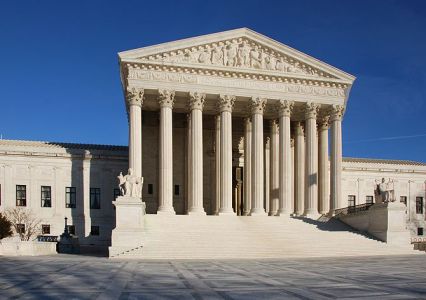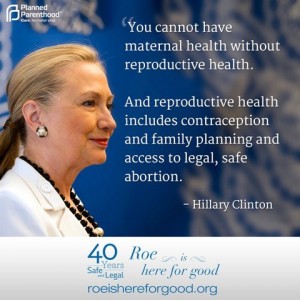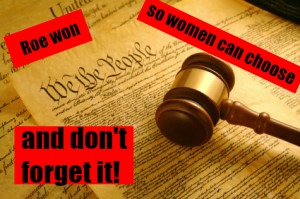I’m a 16-year-old boy and went to Washington D.C. in January of 2015 with the Religious Action Center (RAC) to express my views with senators and representatives on hot political topics. The point in having hundreds of teenagers support their personal views wasn’t to push them into a party but to teach them how to share their opinions respectfully and correctly.
“It’s a woman’s right to control her own destiny, to be able to make choices without the Big Brother state telling her what she can and cannot do.” Supreme Court Justice Ruth Bader Ginsburg
I went to D.C. unsure of what i was doing, but as I learned about all the different topics and how to present my opinions and what i can do with them, I picked two topics i felt strongly about (stem cell research and reproductive rights). I felt strongest on reproductive rights so I wrote a speech and presented it to California senators and representatives. I learned so much about women and reproductive rights in America like in 1973 a supreme court ruling gave women a constitutional right to choose what happens to their body, but since then restrictions have been placed limiting women all around America. In fact, 88% of ALL U.S. counties don’t have abortion providers because of all the restrictions in place. My friend Elizabeth and I wrote a speech expressing our views, and this was written by a junior and sophomore in high school.
Good morning. I’m Austin Williams and this is Elizabeth Markus. We’re here today to express our opinions to you, name, and represent the Religious Action Center for Reformed Judaism. As I’m sure you know, in the Supreme Court in Roe v. Wade in 1973, women were ensured a constitutional right to choose to have an abortion. Restrictions have been placed on this decision since then, and in the 113th congress, there were more restrictions passed than in any other congress before. The government chose not to insure abortion through Medicare and other government insurance programs. Millions of women have been affected by this decision, and many women cannot afford the procedure without insurance. States have also restricted women who want to get an abortion. A constitutional right was to be safeguarded, and clearly this right isn’t being protected like it should. In fact, 88% of all the U.S. counties have no abortion provides because of the restrictions in place. If someone wasn’t aware of the Roe v. Wade case, they wouldn’t know that abortion fell under a constitutional right.
Jewish teachings show that a life is one of the most important things there is. If a woman’s life is endangered, then she should do anything she can to live, including losing the life of her unborn child. We are told this in ancient text to show how important the woman’s life is compared to the fetus. The baby isn’t considered alive until conceived. Now a days we know a baby’s heart starts to beat before conception, but the lesson still applies. A woman’s life is important, and if something endangers her, the well-being of the fetus isn’t as important as the grown woman. Throughout the ancient texts, it is said again and again that those who are already living and well are more important than a baby yet to be born. A women is told to care for her body above all else.
We believe a woman’s right to have an abortion is very important, especially because we know that our rabbi has personally gone through the process of a third-trimester abortion. In 2008, Rabbi Young and his wife were at a routine check-up for their pregnancy eight months in. Even though it was so late in the pregnancy, new complications were found. Their fetus was diagnosed with lissencephaly and microcephaly, which means that the head was too small and the brain was smooth. If the baby was born, he would not have been physically able to survive outside of the womb. Rabbi Young and his wife were forced to make an impossible decision- to have an abortion or to give birth to a child that would not have been able to live. They chose to have an abortion because they decided it would be better to say goodbye then rather than to have to sign the paperwork to take their child off of life support and watch their child die. Even though it was a devastating decision to make, he said that he was grateful to have had the choice to have an abortion rather than being forced to give birth to the child and face harder consequences later. When we heard this story, we were shocked. We were also grateful that our rabbi felt comfortable telling us about his experience with abortion. Knowing someone who has personally gone through the process of abortion has given us a whole new perspective regarding the ethics of abortion and a more intimate understanding of the parents’ feelings while going through the process.
The Pain Capable Unborn Child Protection Act (H.R. 36) is an extreme bill that restricts access to abortion at an arbitrary point in gestation with very few exceptions.
Senate:
We urge you to oppose legislation that would limit women’s access to reproductive healthcare services, a crucial component of overall healthcare. Bills like the Pain Capable Unborn Child Protection Act, which was just reintroduced in the House and which we anticipate being reintroduced to the Senate, would severely limit a woman’s constitutional right to choose whether or not to have an abortion.
House:
We know you voted in support of the Pain Capable Unborn Child Protection act in the 113th Congress, which was then H.R 1797 and is now H.R. 36. We ask that you consider our views when casting your vote on the new version of this bill, which would severely limit a woman’s constitutional right to choose whether or not to have an abortion, thereby restricting an important element of healthcare.
Both:
We would like to thank you for taking the time to hear us today and for your consideration.


